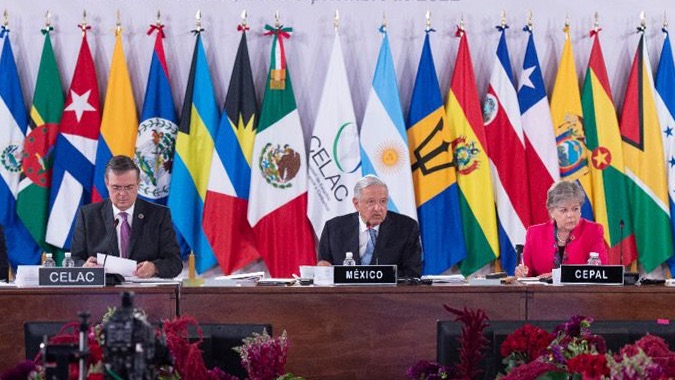Bridging the Healthcare Divide: Community Health Centers and Equitable Access in the Americas
Health equity, defined as the absence of avoidable and unfair health disparities among population groups, is paramount for thriving communities across North and South America. However, significant health disparities persist, hindering individual well-being and societal progress. This inequitable distribution of healthcare access necessitates a comprehensive, multi-sectoral strategy, with community health centers playing a crucial role in mitigating these disparities. We will analyze this challenge through the lens of social determinants of health, health systems strengthening, and community-based participatory research (CBPR) principles.
The lack of equitable access to healthcare is not merely an inconvenience; it is a fundamental violation of the right to health. Marginalized populations disproportionately face systemic barriers to accessing essential medical services. These barriers, often rooted in social determinants of health (SDH) – encompassing socioeconomic status, geographic location, education, and environmental factors – lead to preventable morbidity, mortality, and compromised quality of life. This aligns with the social justice framework, highlighting the need for equitable distribution of resources and opportunities.
Several factors contribute to these pervasive health inequities. Financial constraints, including lack of health insurance and high out-of-pocket costs, create significant barriers to care. Furthermore, geographical limitations, particularly in rural and remote areas, exacerbate access issues, creating what is known as a healthcare desert. This is further compounded by linguistic and cultural barriers hindering effective communication between patients and providers, reducing healthcare utilization and effectiveness. This complex interplay of factors can be modeled using the Andersen Behavioral Model, illustrating how predisposing, enabling, and need factors interact to influence healthcare utilization.
The consequences of healthcare inequality extend beyond individual suffering. Limited access to healthcare reduces productivity and contributes to economic hardship for individuals and families. The resulting untreated illnesses place an additional burden on already strained healthcare systems, perpetuating a cycle of inequity and reinforcing existing social inequalities. This aligns with the concept of a vicious cycle of poverty and ill-health, described in many public health literature.
Community health centers (CHCs) are essential in addressing these disparities. Strategically located within underserved communities, CHCs provide comprehensive primary care, preventative services, and culturally sensitive health education. Their commitment to affordability and cultural competency empowers individuals to take control of their health. This reflects the principles of community-based participatory research (CBPR), emphasizing community ownership and engagement in healthcare solutions.
Innovative approaches are demonstrating tangible improvements in healthcare access. Mobile health clinics, for instance, effectively overcome geographical barriers, providing services directly to remote populations. These initiatives exemplify the strategic use of technology to enhance access and improve health outcomes. The effectiveness of these interventions can be evaluated using health outcome measures and impact assessments.
Empowering communities is critical for sustainable change. Grassroots initiatives, incorporating CBPR principles, enable community members to actively participate in decision-making processes concerning their healthcare needs. This participatory approach promotes community ownership, ensuring solutions are relevant, effective, and sustainable. Empowerment also enhances the sense of community efficacy leading to improved health outcomes.
Investing in health literacy initiatives improves health outcomes. Disseminating accurate information empowers individuals to make informed decisions regarding their health. Health education programs focusing on preventive care and chronic disease management significantly reduce the burden of illness. This aligns with the health belief model, demonstrating how knowledge and perceived susceptibility influence health behaviors.
Addressing health inequities requires a collaborative approach involving governments, healthcare providers, NGOs, and community members. A coordinated, multi-sectoral strategy, leveraging the expertise and resources of all stakeholders, is essential. This collaborative model aligns with principles of systems thinking, emphasizing interconnectedness and interdependence of different components within the health system.
Strategic investments in healthcare infrastructure are paramount. Governments must prioritize resource allocation to develop and maintain healthcare facilities in underserved areas, coupled with improvements to transportation infrastructure. This investment directly addresses the enabling factors in the Andersen Behavioral Model.
Technological advancements offer transformative potential. Telemedicine, for example, effectively bridges geographical barriers, expanding access to specialized care, particularly for marginalized populations. This integration of technology needs to consider digital literacy and equity of access to technology.
Investing in the healthcare workforce is crucial. Providing healthcare professionals with advanced training and supportive work environments ensures high-quality care. Adequate staffing and competitive compensation are essential for recruiting and retaining skilled personnel. This enhances the capacity of the healthcare system to deliver equitable care.
Data-driven decision-making is fundamental for effective interventions. Collecting and analyzing data on healthcare utilization, disease prevalence, and health outcomes allows for identifying areas requiring targeted interventions. Evidence-based strategies, informed by robust data analysis, enhance efficiency and effectiveness of resource allocation. This aligns with the principles of public health surveillance and program evaluation.
While significant challenges remain, they also present opportunities for growth and collaboration. By fostering a spirit of unity and acknowledging the unique strengths of diverse communities, we can collectively work towards health equity. Building resilient and equitable healthcare systems requires a shared commitment and shared responsibility.
Conclusions and Recommendations: Achieving health equity in the Americas requires a sustained and multifaceted approach. This necessitates strategic investments in CHCs, community empowerment through CBPR, health literacy promotion, technological advancements, and strong collaborative partnerships. Future research should focus on evaluating the long-term impact of these interventions, exploring the effectiveness of culturally adapted healthcare delivery models, and investigating the role of policy interventions in addressing social determinants of health. The findings from this research can inform the development of evidence-based policies and programs, aiming for a future where access to quality healthcare is a fundamental right for all.
Reader Pool: Considering the multifaceted nature of health inequities and the proposed solutions, what are the most significant barriers to implementing these recommendations, and what innovative strategies could overcome these challenges?





No comments yet. Be the first to share your thoughts!